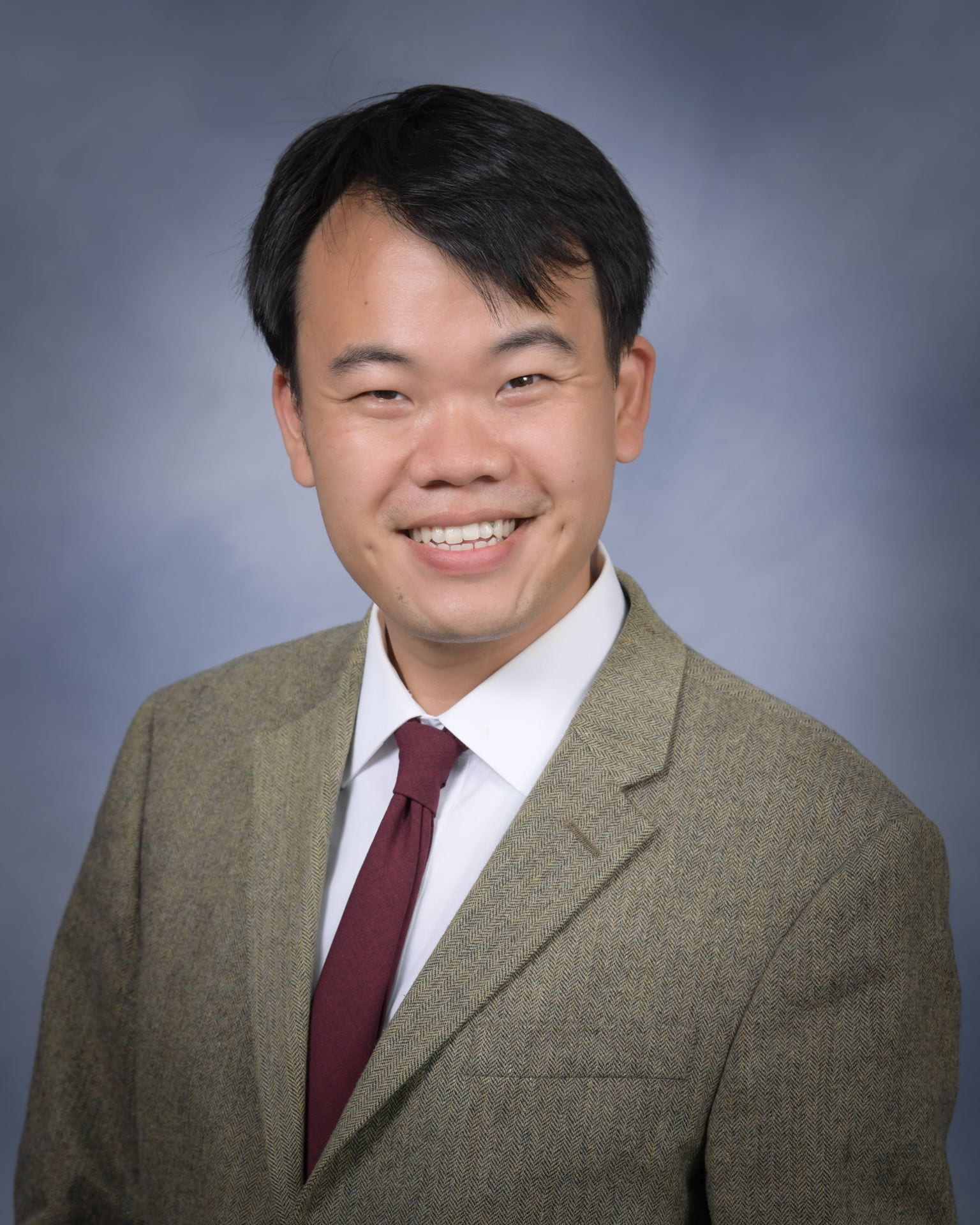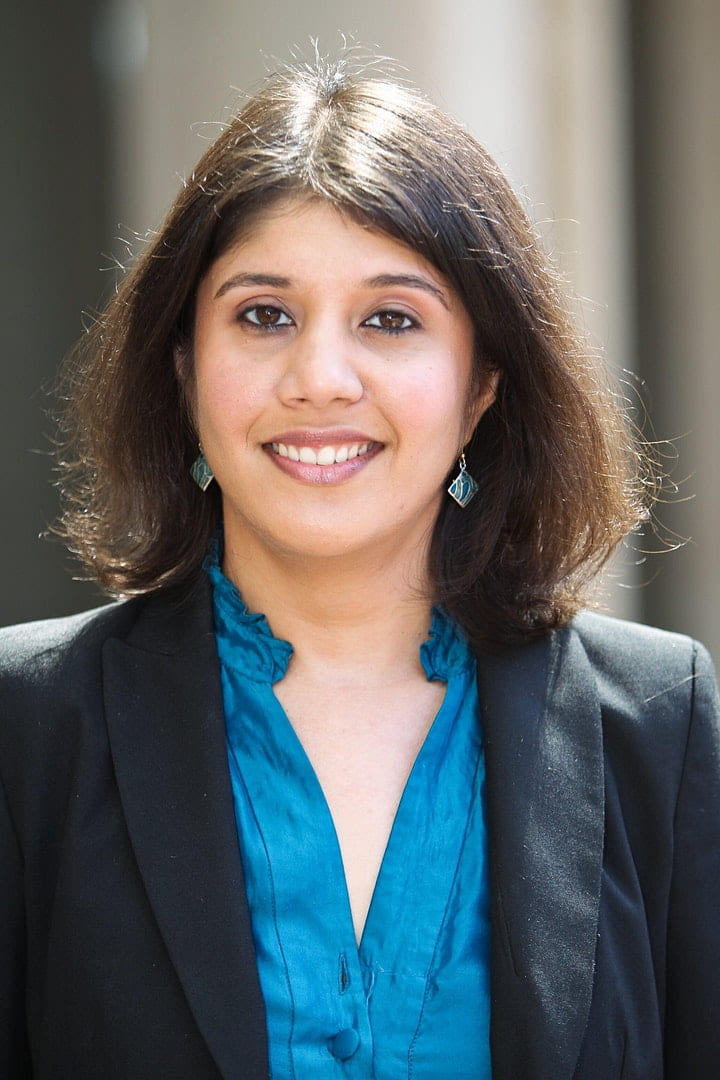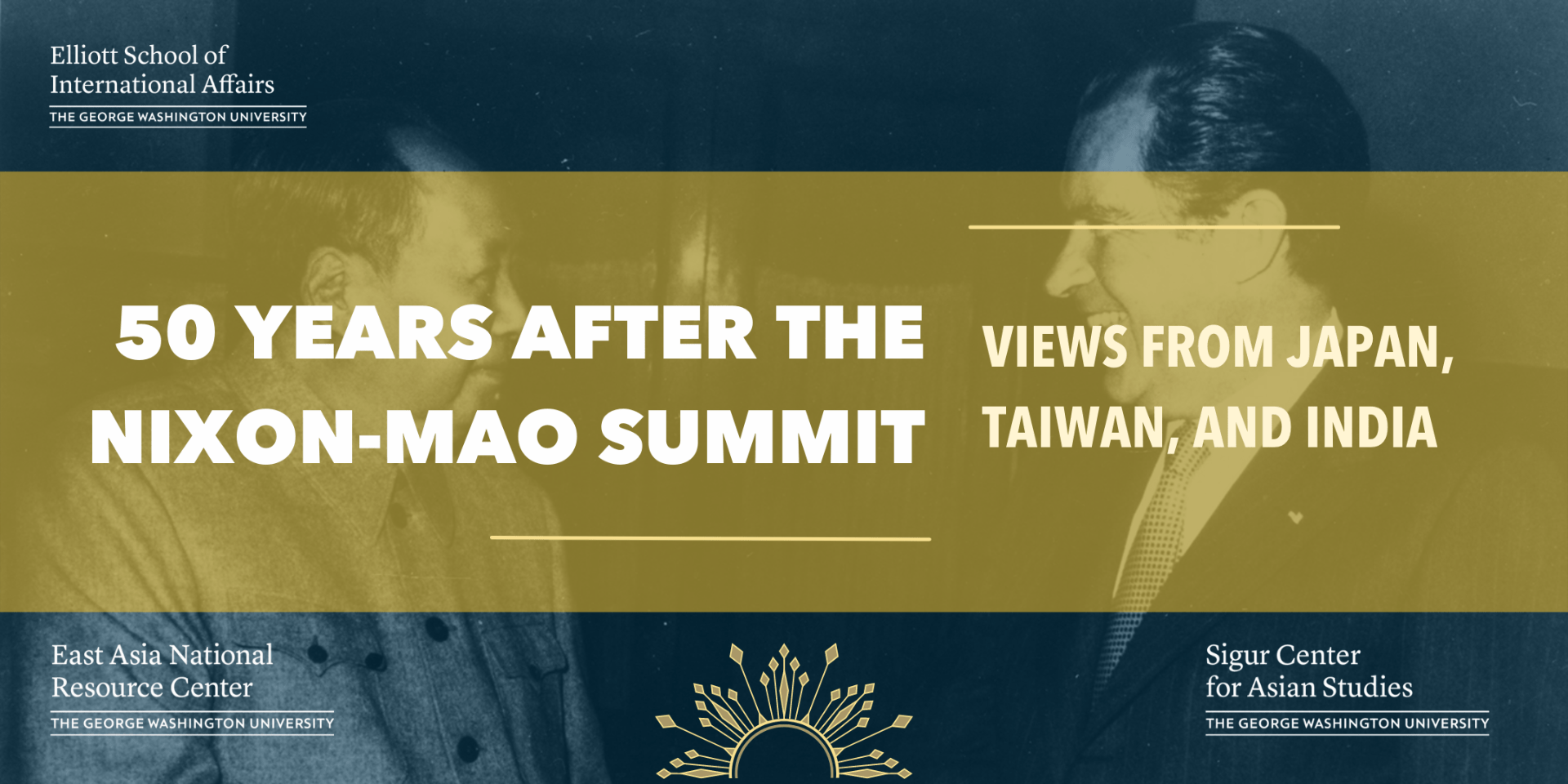Sponsored by the Sigur Center for Asian Studies and East Asia National Resource Center
Monday, April 18, 2022 | 12:30 pm – 1:45 pm EDT
Zoom Event
The United States President Richard Nixon’s 1972 visit to the People’s Republic of China ended 25 years of no communication between the U.S. and the PRC and opened the door to the normalization of relations between the two counties. While normalization did not come about until 1979, the historic meeting between Richard Nixon and the Chairman of the PRC’s ruling Communist Party, Mao Zedong, marked a historic turning point. While much has been made about the impact upon the PRC and the U.S., less attention has been paid to the rippling effects across Asia. To address these effects, we bring together a panel of experts who will discuss the impacts that the summit had upon Japan, Taiwan, and India when it occurred and in the decades following.
This event will be on the record and a recording will be available on the NRC YouTube channel after the event.
Registration
The event is open to the public. Registered guests will receive details for joining the Zoom meeting.
Speakers
- Fintan Hoey, Associate Professor of History, Franklin University Switzerland
- “From the ‘China Shock’ to ‘Duck Diplomacy’: Japan and the Nixon-Mao Summit”
- James Lee, Postdoctoral Research Associate at the UC Institute on Global Conflict and Cooperation (IGCC)
- “50 Years of the One-China Policy”
- Tanvi Madan, Senior Fellow, Foreign Policy, Project on International Order and Strategy, Brookings Institution
Opening Remarks
Gregg Brazinsky, Professor of History and International Affairs, Director of the Asian Studies Program, Acting Director of the Sigur Center for Asian Studies
Moderator
Deepa Ollapally, Research Professor of International Affairs and the Associate Director of the Sigur Center for Asian Studies
Speakers

Fintan Hoey, PhD is an Associate Professor of History at Franklin University Switzerland and in 2019 was a Swiss National Science Foundation fellow at the Wilson Center. In 2015 he published, Sato, America and the Cold War: U.S.-Japanese Relations, 1964-1972 with Palgrave Macmillan. This examines a critical time of change in U.S.-Japanese relations, including the ramifications of the burgeoning Sino-American rapprochement under Nixon and Mao. More recently his work has focused on Japanese policies on the non-proliferation of nuclear weapons and on nuclear power generation.

James Lee is a postdoctoral research associate at the UC Institute on Global Conflict and Cooperation (IGCC), which is based at the School of Global Policy and Strategy at the University of California, San Diego. He received his Ph.D. in Politics from Princeton University in 2018 and subsequently held a fellowship in the Max Weber Program for Postdoctoral Studies at the European University Institute in Florence, Italy. Starting in August 2022, he will be an Assistant Research Fellow (equivalent to Assistant Professor) at the Institute of European and American Studies at the Academia Sinica (中央研究院) in Taiwan.
His research interests are at the intersection of international relations, diplomatic history, economics, East Asian Studies, and Classics. He studies grand strategy, geoeconomics, and great power competition in historical periods ranging from ancient Greece to the Cold War to the present day. He is especially interested in U.S. grand strategy in Europe and East Asia, U.S.-Taiwan relations, and the reception of Thucydides in the field of strategic studies. His research has been published in the International Studies Quarterly, the Journal of Strategic Studies, the Journal of East Asian Studies, and the Journal of Chinese Political Science.
He is also interested in the policy aspects of U.S.-Taiwan relations. He has written policy briefs on the United States’ One-China policy and the security of Taiwan, and his analysis of Taiwan’s security has been featured in Voice of America, East Asia Forum, and the Ploughshares Fund. He is a member of the U.S.-Taiwan Next Generation Working Group, a program organized by the Institute of East Asian Studies at UC Berkeley for specialists on Taiwan’s foreign affairs.

Tanvi Madan is a senior fellow in the Project on International Order and Strategy in the Foreign Policy program, and director of The India Project at the Brookings Institution in Washington, DC. Madan’s work explores India’s role in the world and its foreign policy, focusing in particular on India’s relations with China and the United States. She also researches the U.S. and India’s approaches in the Indo-Pacific, as well as the development of interest-based coalitions, especially the Australia-India-Japan-U.S. Quad.
Madan is the author of the book “Fateful Triangle: How China Shaped US-India Relations during the Cold War” (Brookings Institution Press, 2020). Her ongoing work includes a book project on the recent past, present, and future of the China-India-US triangle, and a monograph on India’s foreign policy diversification strategy.
Madan is a member of the editorial board of Asia Policy, a contributing editor at War on the Rocks, and a member of the Australian National University’s National Security College’s Futures Council.
Opening Remarks

Gregg Brazinsky (he/him) is Professor of History and International Affairs. He is director of the Asian Studies Program, acting director of the Sigur Center for Asian Studies, and acting co-director of the East Asia National Resource Center. He is the author of two books: Nation Building in South Korea: Koreans, Americans, and the Making of a Democracy and Winning the Third World: Sino-American Rivalry during the Cold War. His articles have appeared in numerous journals including Diplomatic History and the Journal of Korean Studies. He has written op-eds for The Washington Post, The Chicago Tribune and several other media outlets. He is currently working on two books. The first explores American nation building in Asia–especially Japan, Taiwan, and South Korea. The second explores Sino-North Korean relations during the Cold War.
Moderator

Deepa M. Ollapally is Research Professor of International Affairs and the Associate Director of the Sigur Center for Asian Studies at the Elliott School of International Affairs, The George Washington University. She directs the Rising Powers Initiative which tracks foreign policy debates in major powers of Asia and Eurasia.
She is a specialist on Indian foreign policy, India-China relations, Indo-Pacific regional and maritime security, and comparative foreign policy outlooks of rising powers and the rise of nationalism in foreign policy. Ollapally is the author of five books including Worldviews of Aspiring Powers (Oxford, 2012). Her current research focuses on maritime and regional security in the Indo-Pacific. She is currently writing a book on Big Power Competition for Influence in the Indo-Pacific. She has won grants from Carnegie Corporation, MacArthur Foundation, Smith Richardson Foundation, Rockefeller Foundation and Asia Foundation for work related to India and Asia.
Ollapally has held senior positions in the policy world including US Institute of Peace; and National Institute of Advanced Studies, Bangalore, India. She holds a Ph.D. in Political Science from Columbia University.





